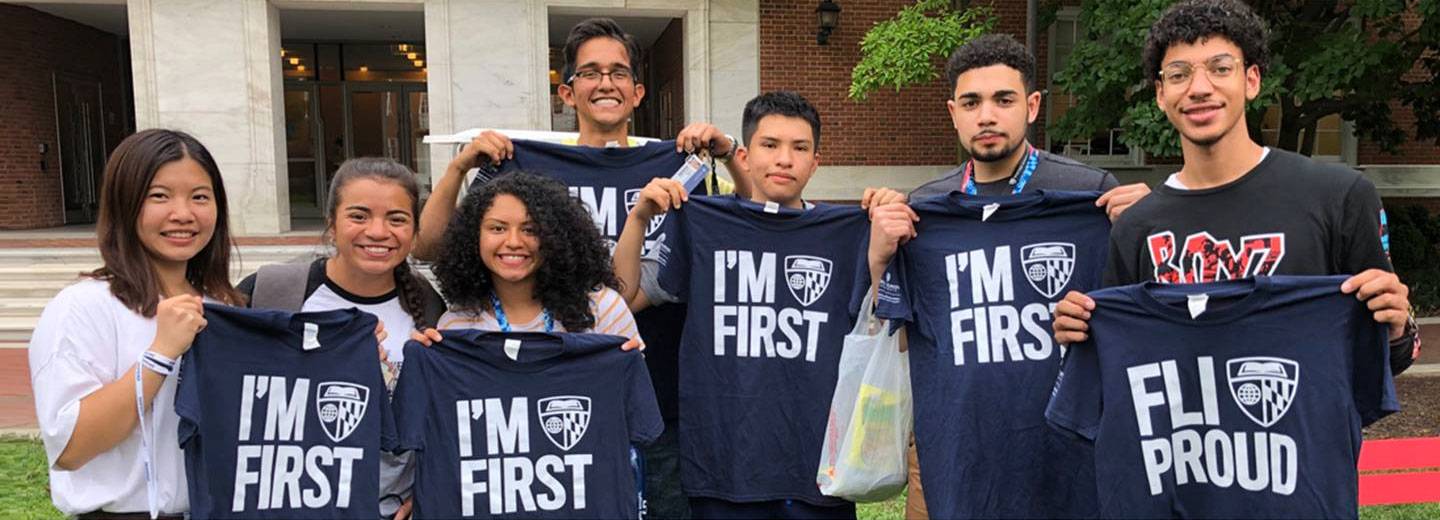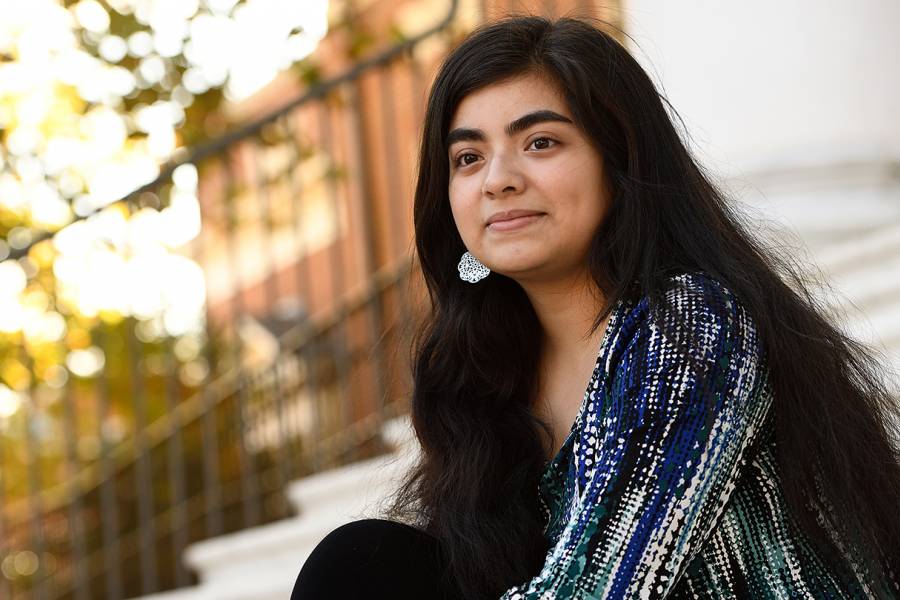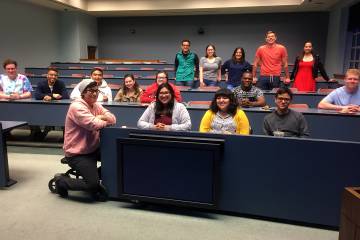Dannis Cazarez knew that getting out of her hometown was going to be a challenge.
She was the first in her family to apply to college, and her small school in rural North Carolina had few resources to help students looking to attend an out-of-state school. If she was going to go out into the world, it was going to take a plan.
"There's not a lot of diversity at home. I grew up in a mainly white Baptist community," said Cazarez, who is of Mexican heritage. "Being a minority there, I knew I wanted to get out."
When high school guidance counselors couldn't help her find information on schools outside of North Carolina, she began researching on her own. She dual-enrolled at Surry Community College to prepare herself for the rigor of college classes, and she got involved in extracurricular activities to strengthen what she saw as her weaknesses.
To improve her STEM skills, she joined the International Science and Engineering Fair, then took part in National History Day events to work on her shyness and communication. With hard work, weaknesses became strengths as her projects reached national competitions in both organizations. Cazarez traveled to Los Angeles and Baltimore to compete, her first time in big cities and a chance to sample cultures outside of her own.
Her plan came to fruition in 2018 as college acceptances began rolling in. After comparing financial aid packages, and with the support of Horatio Alger and Gates scholarships, she decided to enroll at Johns Hopkins.
Cazarez is among hundreds of first-generation college students at Hopkins. First-generation students make up 11.3% of the total student population at JHU, with that number growing with each incoming class in recent years. Fifteen percent of students in the Class of 2023 are first-gen, nearly double the percentage in the Class of 2020.
"Hopkins has committed to being ready for first-gen students," said Kelly Barry, executive director at the Center for Student Success, which houses the first-generation, limited income (FLI) programs and initiatives. "Their intellectual drive and energy flow right into the currents of student life here. But, for most, the stakes feel higher—their personal ambitions are compounded with the hopes of their families and communities.
"We have to humbly listen to what first-gen students need and use our expertise and resources to provide it. It's an obligation that we also gain from in enormous ways when first-gen students share their abilities and insights back with our campus community."
On Friday, Johns Hopkins will join universities across the country in celebrating National First-Generation College Student Day, acknowledging the achievement and dedication of first-generation college students. An event will be held from 11:30 to 1 p.m. on the Keyser Quad featuring food, hot chocolate, apple cider, giveaways, and more.
Cazarez, now a sophomore majoring in cognitive science, currently serves as a board member and vice president for the FLI Network, which has been supporting first-generation, limited-income students at Hopkins since its founding in 2017. The group connects students with on-campus resources as well as faculty and staff that share similar backgrounds.

Image caption: Johns Hopkins FLI students pose with I'm First t-shirts
Resources include an online guide to acronyms used on campus, a dictionary of terms specific to higher ed, FLI student meetups, and a laptop borrowing program.
"A lot of people don't realize that we're handling money, home, school, and work, often at the same time. You're stressing all the time." Cazarez said. "For a lot of students here, their families are providing for them, but for us, it's the opposite. Our families depend on us."
Cazarez's mom works as a general labor associate disassembling chicken at Wayne Farms, the biggest company in her area. She said that although her mom doesn't always understand the challenges she's facing at Hopkins, she's always there with her love and support.
One of Cazarez's two younger siblings recently began applying to colleges. She said it's been gratifying to be able to help her sister and to pass on what she's learned. Recently, she was invited back to her high school to give a motivational talk to the school's freshman class about her journey.
While she wasn't always able to receive the individualized guidance she needed as a high school student, she said her mentors and family have been tremendously supportive.
"I'm always grateful to return to my roots," Cazarez said. "It's important to provide that same mentorship that you either received or wanted to receive to the next generation."









